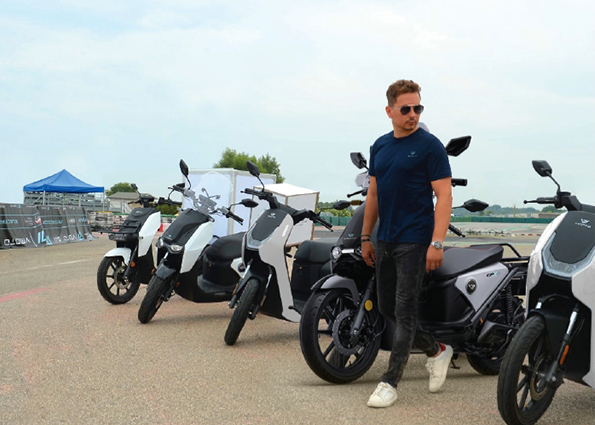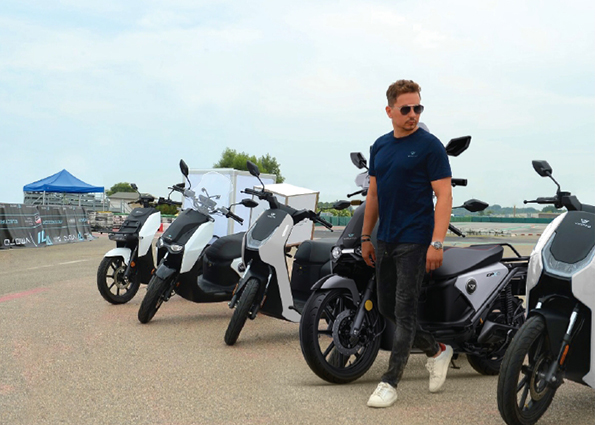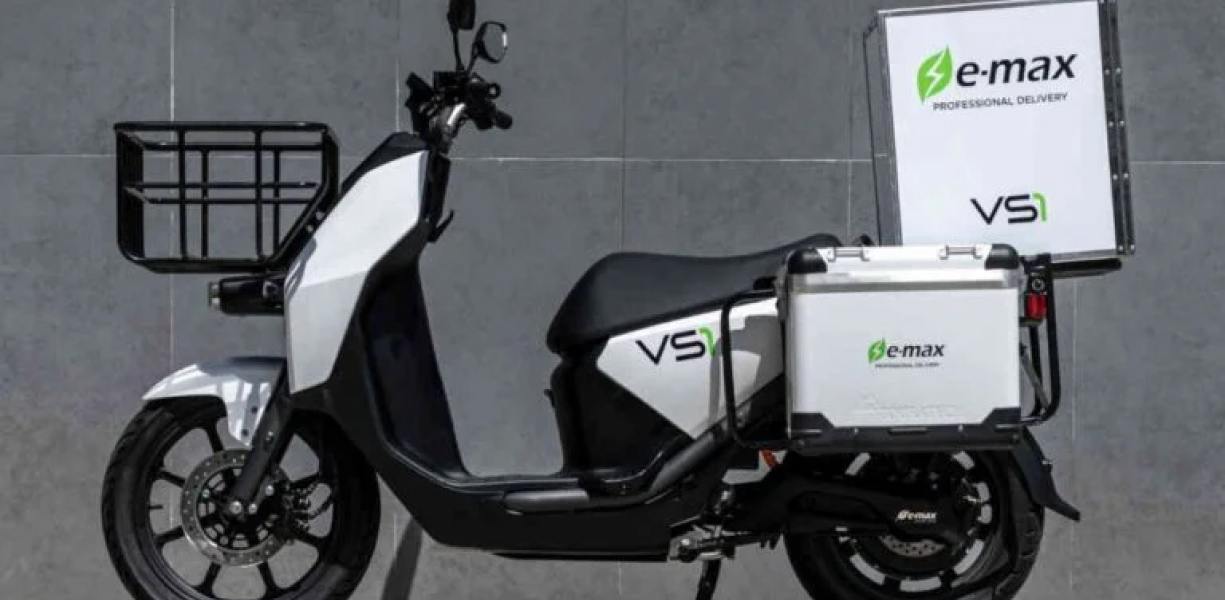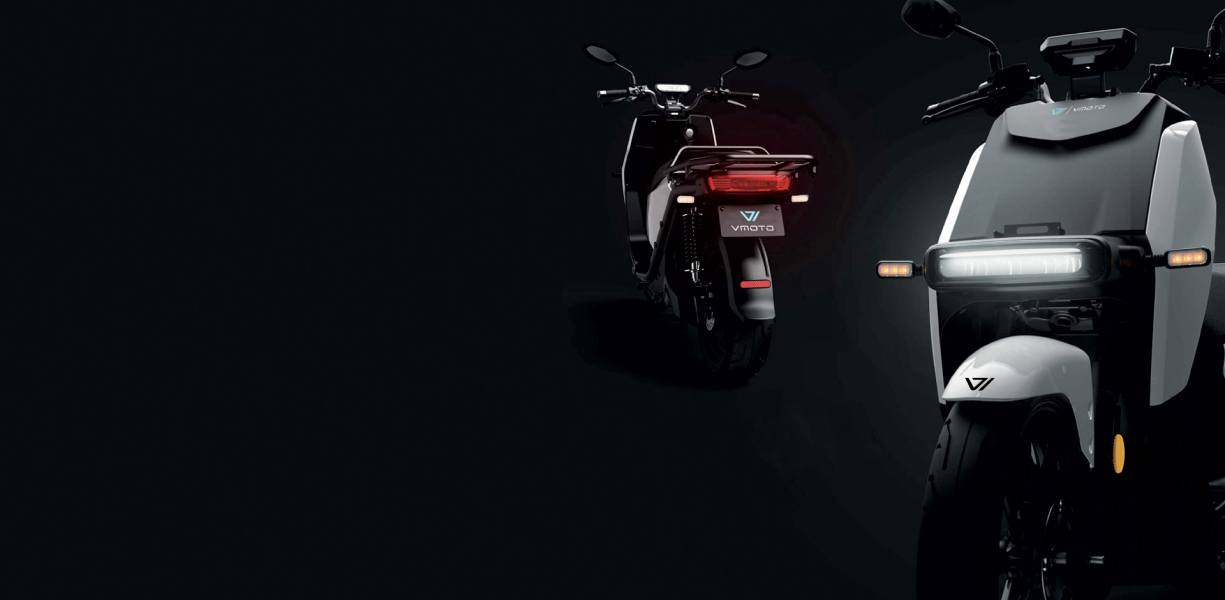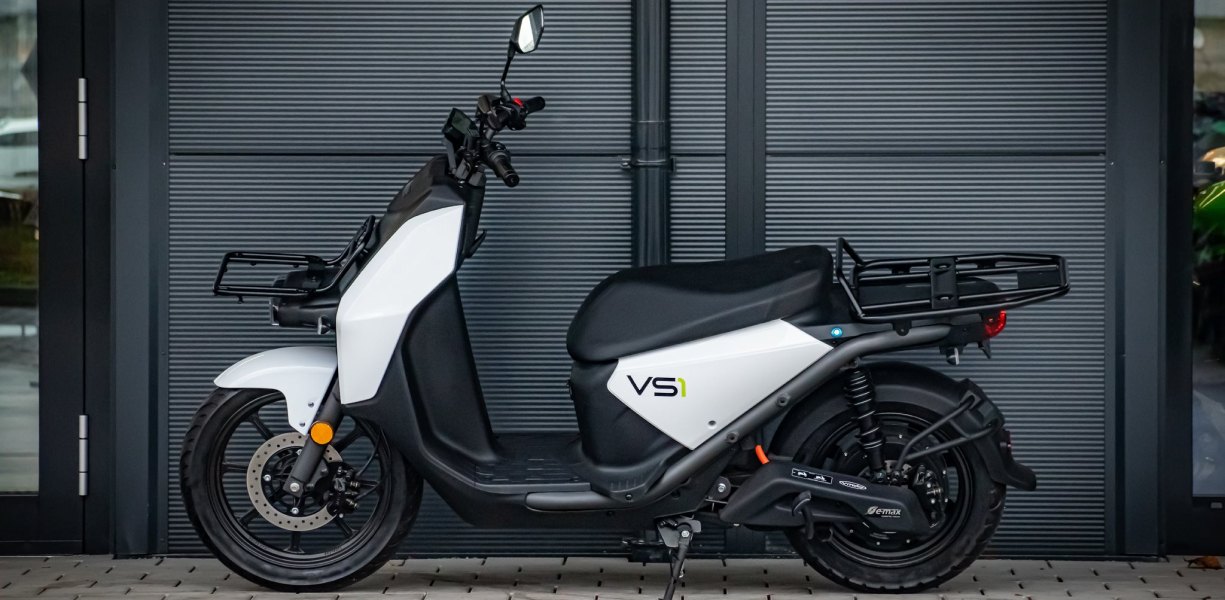
Comparing Electric Delivery Motorcycles to Traditional Delivery Vehicles: An Analytical Perspective
Dubai’s dynamic environment, characterized by a mix of tradition and progress, is evolving swiftly. With its status as a major global economic hub on the rise, Dubai aims to be a leader in sustainability and smart transportation in line with Dubai Vision 2030’s ambitious targets, which include reducing carbon emissions by 30 percent and switching to electric delivery motorcycles.
In this article, we’ll delve into a comparative examination of electric delivery motorcycles versus conventional delivery vehicles. Through the lens of Dubai’s vibrant urban landscape, we aim to explore the implications of adopting electric mobility for last-mile logistics within the city.
By assessing environmental impact, operational efficiency, and scalability, we aim to shed light on the potential for cultivating a more sustainable and adaptable delivery ecosystem that aligns with Dubai’s vision for a prosperous and environmentally conscious future.
Cost-Effectiveness
One of the primary considerations for any business is cost. EVMs typically have a higher initial purchase price compared to traditional motorcycles and small delivery vans. However, their long-term operational costs are significantly lower. Electric motorcycles benefit from reduced fuel expenses, as electricity is cheaper than gasoline or diesel. Maintenance costs are also lower since electric engines have fewer moving parts, reducing the frequency and cost of repairs.
For instance, a typical Traditional Delivery Vehicle ( TDV ) might consume several gallons of fuel daily, depending on the delivery distance, whereas an EVM can cover the same distance on a single charge, costing a fraction of the price. Over a year, these savings add up, making EVMs a cost-effective alternative in the long run.
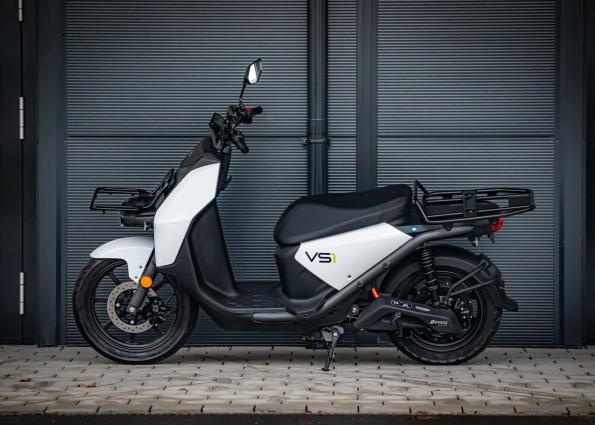
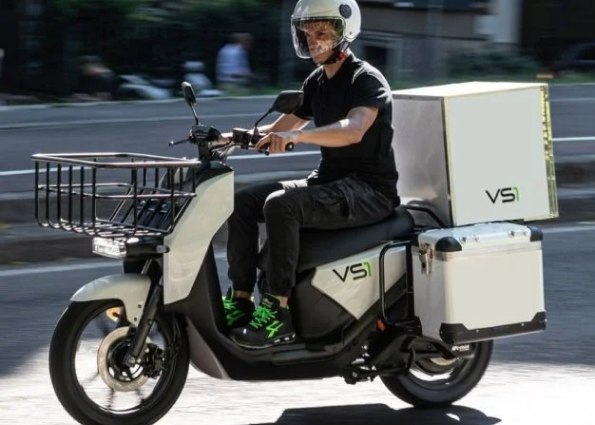
Environmental Impact
The environmental benefits of EVMs are perhaps the most compelling argument in their favor. Electric vehicles (EVs) offer significant environmental benefits compared to Internal Combustion engine (ICE) vehicles. Traditional delivery vehicles contribute to air pollution and greenhouse gas emissions, exacerbating climate change and harming public health. In contrast, EVMs produce zero tailpipe emissions, making them a cleaner option for urban environments. According to a journal published in Springer Link, EVs have been shown to reduce emissions such as PM2.5 and NOx compared to internal combustion engine (ICE) vehicles, contributing to improved air quality and public health.
Furthermore, the shift to electric vehicles is supported by the growing availability of renewable energy sources. Charging EV motorcycles using solar or wind power further reduces their carbon footprint, making them an integral part of sustainable urban logistics.
Operational Efficiency
Traditional vehicles, while offering larger cargo space, incur higher fuel and maintenance costs and are less agile in traffic. When it comes to operational efficiency, EV motorcycles offer several advantages. Their compact size and agility allow them to navigate through congested city streets more effectively than larger delivery vans. This means faster delivery times and improved customer satisfaction. Additionally, EV motorcycles are often allowed in areas restricted to larger vehicles, such as pedestrian zones or narrow alleys, providing greater access to delivery points.
Broader Implications for Urban Logistics
With Dubai’s Roads and Transport Authority (RTA) announcing a comprehensive plan to boost its sustainability initiatives, the adoption of EVMs has significant implications for urban logistics. The plan, directed at the delivery service sector, involves the development of a prototype for electric motorcycles and the establishment of charging stations throughout Dubai, among others.
Besides, cities including Dubai are increasingly dealing with issues like traffic congestion and air quality. Integrating more EV motorcycles into the delivery fleet can alleviate these problems by reducing the number of large vehicles on the roads and lowering emissions.
Moreover, the quieter operation of electric motorcycles contributes to less noise pollution, enhancing the urban living experience. This can translate into an improved brand reputation for businesses as consumers become more environmentally conscious and supportive of green practices.
In conclusion, the comparison between Electric Delivery Motorcycles and Traditional Delivery Vehicles highlights a clear trend towards more sustainable and efficient delivery methods. While EV motorcycles require a higher initial investment, their long-term cost savings, environmental benefits, and operational efficiencies make them an attractive option for modern urban logistics. As cities like Dubai continue to evolve and prioritize sustainability, the role of Electric delivery motorcycles like VS1 from Xoom Volt is set to become increasingly significant, paving the way for a greener future in the delivery industry.






